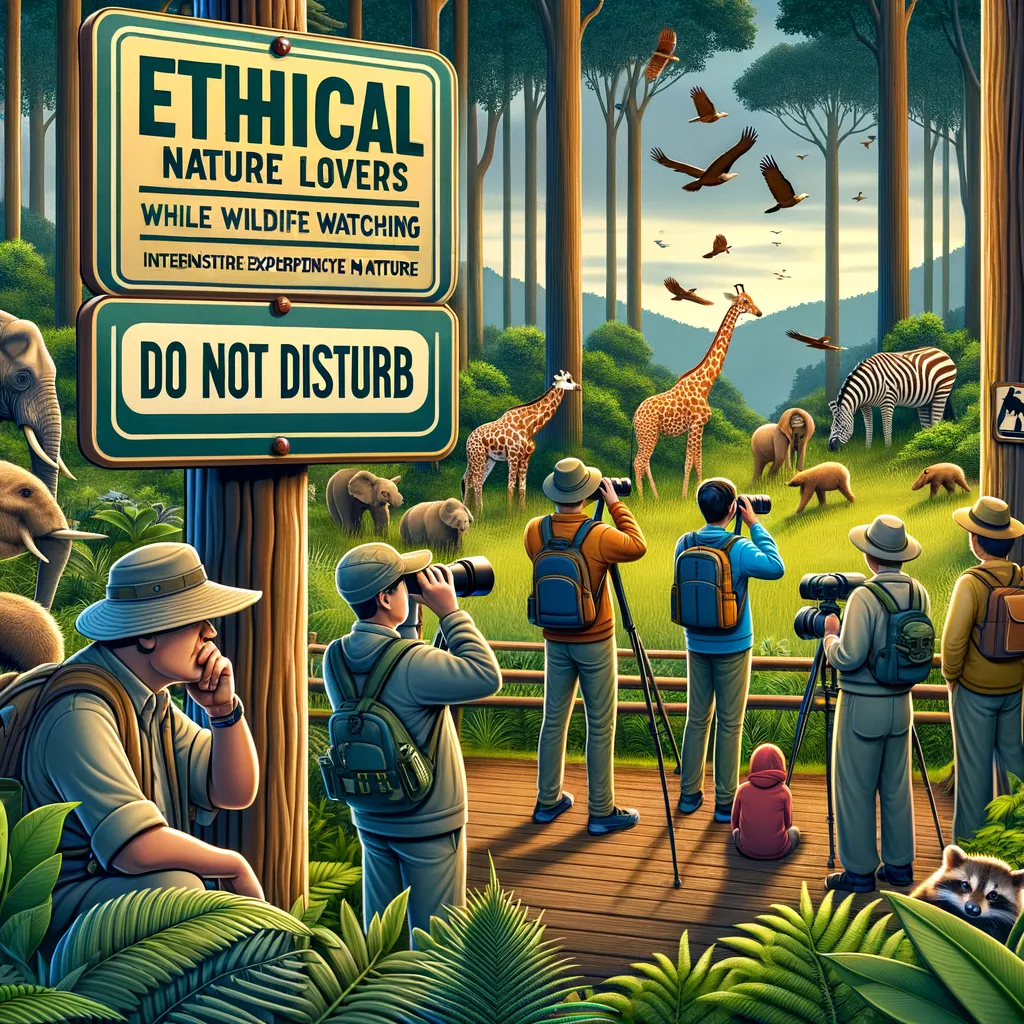Wildlife Watching: Ethical Tips for Nature Lovers
Welcome, nature enthusiasts! Are you looking to embark on an unforgettable wildlife watching adventure with your family? Spotting animals in their natural habitat can be a thrilling and enriching experience for both parents and children. However, it’s crucial to approach wildlife watching with respect and responsibility. Our guide is here to share some essential ethical tips to ensure that your nature encounters are safe, respectful, and preserve the beauty of the wild for future generations. So, pack your binoculars, and let’s explore the do’s and don’ts of wildlife watching!
Understanding Wildlife Watching
Wildlife watching involves observing animals in their natural surroundings without interrupting their normal activities. It’s an exceptional way to connect with nature, learn about different species, and instill a love for the environment in young hearts. However, our presence can significantly impact wildlife and their habitat if we’re not careful. That’s why practicing ethical wildlife watching is paramount.
Why Ethical Wildlife Watching Matters
Engaging with nature carries a profound responsibility. Ethical wildlife watching ensures that we minimize our impact, contribute to the conservation of ecosystems, and support local communities. It respects the welfare of animals, promotes sustainability, and enriches our experiences by fostering a harmonious relationship with nature.
1. Respect Wildlife’s Home
The first rule of wildlife watching is to remember that we are visitors in the natural world. Animals should never be disturbed, harassed, or frightened. Always observe from a distance that is safe for both you and the animals. Use binoculars or zoom lenses for a closer look. The use of drones is often discouraged as they can significantly stress wildlife.
2. Stay Quiet and Move Slowly
To truly embrace the wilderness, blend into your surroundings by being as quiet as possible. Avoid sudden movements that might scare animals away. Moving slowly and speaking in hushed tones will not only increase your chances of seeing wildlife but also create a more serene and immersive experience.
3. Keep Wildlife Wild
Feeding animals might seem like a friendly gesture, but it alters their natural behaviors and diet, making them dependent on humans or possibly leading to health issues. Additionally, keep a safe distance. Getting too close can stress animals and may elicit unpredictable responses. Always let wildlife be wild.
Plan Your Wildlife Watching Trip
Preparation is key to a successful and ethical wildlife watching adventure. Here are some tips to help you plan:
- Research: Before you go, learn about the wildlife native to the area you will be visiting. Understanding their habits can help you spot them while being mindful of their well-being.
- Guides: Consider hiring a local guide. Guides can offer invaluable insights, lead you to the best spots, and share practices for responsible wildlife watching.
- Timing: The time of day greatly affects animal activity. Dawn and dusk are often the best times to see wildlife as many animals are most active during these periods.
- Equipment: Equip yourself with the right gear. In addition to binoculars, consider bringing a wildlife guidebook, a camera with a good zoom, and appropriate clothing for stealth and comfort.
Wildlife watching is more than just an activity; it’s an opportunity to connect with nature on a deeper level, to educate ourselves and our children about the wonders of the natural world, and to contribute positively to environmental conservation. By following these ethical guidelines, your wildlife watching experience will not only be memorable but also respect the natural world we all love and enjoy. Let’s venture into the wild with awareness, respect, and a sense of responsibility, ensuring our adventures nurture both our love for nature and our commitment to its preservation.
https://en.wikipedia.org/wiki/Camping

Essential Guide for Parents: Ethical Wildlife Watching in Louisiana
Exploring Louisiana’s breathtaking natural landscapes and diverse wildlife is a fantastic way for families to spend quality time together. As parents, we hold the power to make wildlife watching a meaningful and educational experience for our children. This guide delves into five key aspects parents should consider for a responsible and enjoyable wildlife watching trip in Louisiana.
1. Educating Your Family About Local Wildlife
Before stepping into the wild, it’s crucial to acquaint yourself and your children with the species you might encounter. Louisiana, known for its rich biodiversity, is home to various species ranging from the iconic American alligator to the elusive Louisiana black bear. Encourage your children to learn about these animals’ habits and habitats. Understanding the significance of each species and their role in the ecosystem will make the wildlife watching experience more enriching and respectful.
2. Choosing the Right Time and Place
Timing is everything in wildlife watching. Early morning or late afternoon are prime times for observing animals when they are most active. Louisiana’s wildlife refuges, national parks, and nature trails offer safe and bountiful viewing opportunities. Locations such as the Barataria Preserve and the Atchafalaya National Wildlife Refuge are splendid for families aiming to spot a wide range of species in their natural habitats. Planning your visit during these optimal times enhances your chances of witnessing wildlife, all the while respecting their natural rhythms.
3. Preparing the Necessary Gear
A successful wildlife watching trip requires appropriate gear. Lightweight binoculars for each family member allow for close-up views without disturbing the animals. A high-quality camera with a zoom lens will enable you to capture distant wildlife without the need to approach closely. Additionally, wearing camouflaged or earth-toned clothing can help you blend into the natural surroundings, making wildlife less likely to be startled by your presence.
4. Demonstrating Respectful Behavior
Respectful behavior is the cornerstone of ethical wildlife watching. Teach your children the importance of silence and stillness. Animals are easily frightened by loud noises and sudden movements. Explain why it’s important to maintain a safe distance, not only for personal safety but also to ensure that wildlife remains undisturbed. Discuss the reasons why feeding wildlife is harmful, emphasizing the importance of preserving their natural behaviors and diet.
5. Adopting a Leave No Trace Principle
Instilling a conservation ethic in our children is perhaps the most lasting gift we can give to future generations. Practicing Leave No Trace principles is fundamental. Ensure that your family understands the importance of leaving habitats exactly as they were found. This means packing out all trash, staying on designated trails, and avoiding the removal of natural objects. Leaving ecosystems undisturbed supports wildlife health and ensures these natural environments remain pristine for future visitors.
Embarking on a wildlife watching adventure in Louisiana is a wonderful way to foster a deep appreciation for nature in our children. By preparing adequately, choosing the right time and place, equipping ourselves properly, demonstrating respectful behavior, and adopting Leave No Trace principles, we can ensure our excursions are ethically sound and immensely rewarding. This not only protects Louisiana’s precious wildlife and habitats but also ensures that these natural treasures will continue to inspire and educate future generations. Remember, our actions today dictate the legacy we leave tomorrow. Let’s make every wildlife watching trip a learning opportunity and a step towards a more sustainable and respectful coexistence with the natural world.
Disclaimer
The articles available via our website provide general information only and we strongly urge readers to exercise caution and conduct their own thorough research and fact-checking. The information presented should not be taken as absolute truth, and, to the maximum extent permitted by law, we will not be held liable for any inaccuracies or errors in the content. It is essential for individuals to independently verify and validate the information before making any decisions or taking any actions based on the articles.


